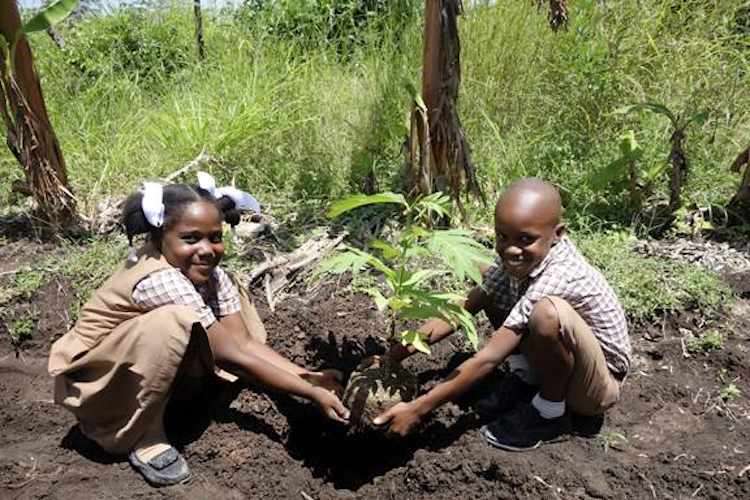World's Largest Free Kitchen Feeds 100,000 a Day Inside a Sikh Golden Temple
In Amritsar, India, volunteers are able to serve 100,000 meals every single day of the year from a kitchen in the Golden Temple that never closes.

The Trees That Feed Foundation announced yesterday that in just five years 50,000 food-bearing trees donated by the organization have been planted in Caribbean nations to help combat hunger and develop a sustainable food source based on trees that grow the breadfruit.
The 50,000th breadfruit tree donated by the group was planted by students as part of a school garden project in Haiti.
"This tree is a great milestone as we work toward a sustainable food supply in Haiti, with breadfruit as a major crop," said Timote Georges, executive director, Smallholder Farmers Alliance, the organization responsible for the school garden. "We are grateful to the Trees That Feed Foundation for their work during the last five years in making breadfruit trees available throughout Haiti."
About 80 percent of the world's hungry reside in the tropics, and government officials in the Caribbean are realizing breadfruit's potential to feed their populations, as an ideal food to replace expensive imported wheat, corn and rice, a large component of local diets.
The native South Pacific tree produces a large, round fruit with green skin, and is larger than a grapefruit. The fruit is cooked and the skin peeled for eating. When cooked, breadfruit tastes similar to unleavened bread, and can serve as a substitute for flour, rice or potatoes.
Mary McLaughlin, a TTFF founder and current chief executive, said tree crops are an answer to world food concerns. "Tree crops are a sustainable food source for tropical countries and have similar nutritional qualities to grains. They require less input of labor, agro chemicals, fertilizers and space. They also restore ecological balance to land damaged by slash-and-burn farming methods, commercial logging, or neglect," she said.
Breadfruit requires less land than wheat and other cereal grains. By drying and milling breadfruit into flour, which lasts for years and lacks gluten, producers are preserving the quick-spoiling fruit. This saves whole crops and makes breadfruit a lasting, sustainable food source. One fruit from a breadfruit tree easily satisfies the carbohydrate portion of a meal for a family of four. A mature tree can produce up to a half ton of fruit per year.
Since its founding in 2008, www.treesthatfeed.org, has achieved humanitarian success with its objective in Haiti and Jamaica to blanket the country with breadfruit trees in order to preserve the environment.
"We believe that residents will not cut down trees that give them food," said McLaughlin.
She added that breadfruit tress planted by TTFF in Jamaica eventually could produce enough flour to replace the 350,000 tons of flour and cornmeal imported into the country each year.
– Featured photo credit: TTFF
Be the first to comment